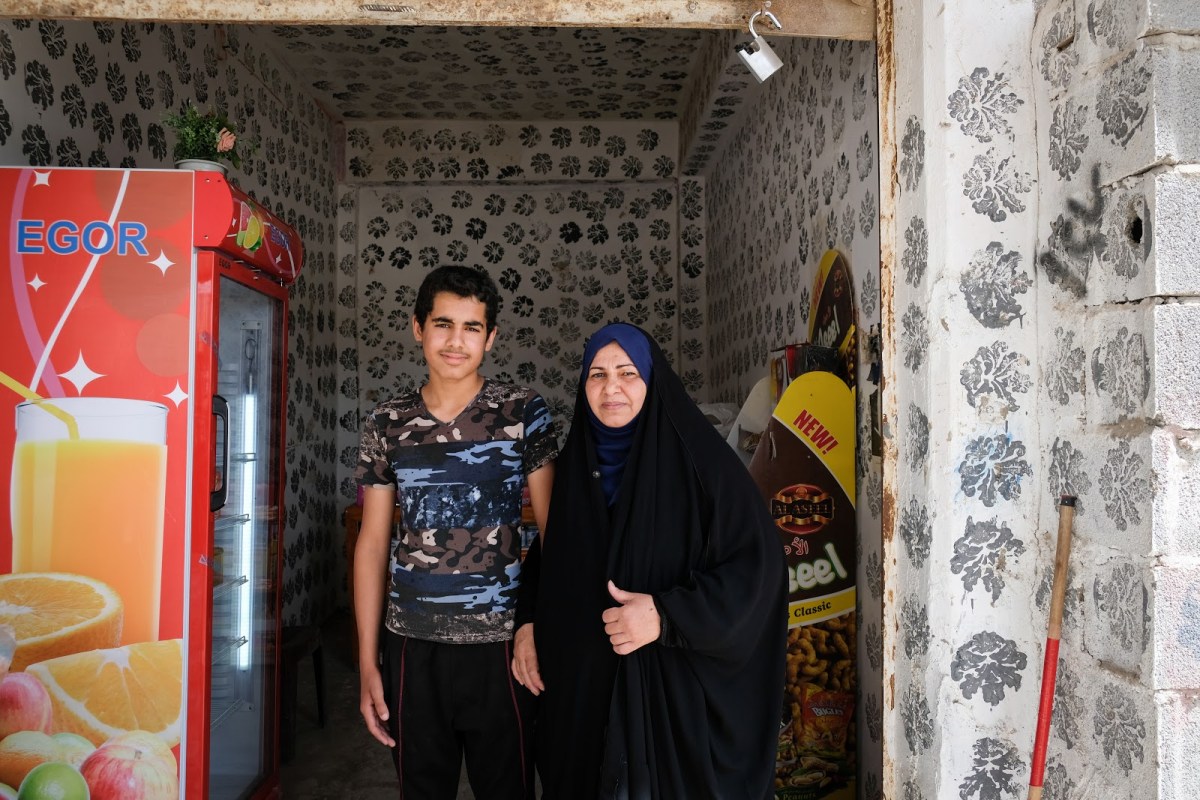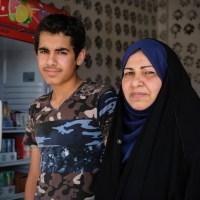Never let it be said that Iraqi parents don’t have a sense of humor.
When Nihaya’s older sister was born, their parents named her Bidaya, which means “the beginning.” When Nihaya (pictured above, right) was born, she was given a name that means “the end.”
Nihaya’s parents were really clear on framing what their family would look like.
Family is the most basic structure on which the rest of Iraqi society is built. Everyone knows who they belong to—immediate family, then tribe, then people group.
The very structure of your name speaks to belonging. Your given name is added to your father’s name, your grandfather’s name, your great grandfather’s name, etc.
In healthy family structures, that potent sense of belonging provides a springboard for life.
Ten years ago, Nihaya had a husband and five children, from newborn to 10 years old. She stayed at home and cared for the needs of her family. Nihaya knew her place in the world through the dynamic of her family.
Then Nihaya’s husband left her to marry another woman. The family structure that gave her sense of place in the world collapsed, and she became the head of her household, solely responsible for the care of her children.
![]()
When we meet Nihaya and her middle son, Nabil, he isn’t a little boy anymore. In America, he would be focused on high school, landing a good summer job, and whatever else 15-year-olds do to fill their days.
But Nabil lives in Fallujah, Iraq.
Because his father left, he lives in a broken home. Because of the war with ISIS, he lives in a broken city.
“Nabil, what do you hope to do in the future?”
“Whatever is best for my family,” he answers without a second thought.
Nihaya may have lost a traditional family structure for her children, but she has raised a tight-knit family who look after each other and sacrifice for each other. Her children are as committed to their family as their mom is.
 We were with them to celebrate the opening of their new store—a chance for Nihaya to create more stability for her family.
We were with them to celebrate the opening of their new store—a chance for Nihaya to create more stability for her family.
Two days before we arrived, Nihaya received a small grant that you made possible—enough to start a new business. The next day, she got to work, renting a shop and purchasing stock.
By Wednesday, she had opened for business, and we were thrilled to be there for her first day!
This is the kind of family you invest in when you create new jobs and help launch new businesses in war-torn cities. You invest in committed families who are all in.
Niyaha’s son Nabil will staff the store until he needs to go to school. Then his brother will come to take over. When that brother needs to leave, their youngest brother will come and staff the store with Nihaya.
They are making this work, together.

“You have to work hard and provide for the family,” Nihaya tells us. “I am sick, but I am still with my son, helping him here in the shop.” She sees many women in movies and on television who work, and she wants that for herself too.
Nihaya will continue to bring stock into her store to meet the needs of her neighbors who have returned since ISIS was pushed out of Fallujah. Together, she and her sons will make this shop a part of their lives. They will invest in their family by investing in this business, which will in turn, will take care of their daily needs.
Two years ago, you were first in when the battle for Fallujah erupted and thousands fled. You met them in the desert with lifesaving food and water. You saved lives.
But it’s by being last to leave that you can help families flourish in a place so many others have given up on. It’s by investing in families and creating new jobs and businesses that you can mend some of the lingering wounds of war.
When you provide small business grants, you partner with families who make big sacrifices for each other. You meet them right where they are today, and offer the means for to walk into the future, stronger.


